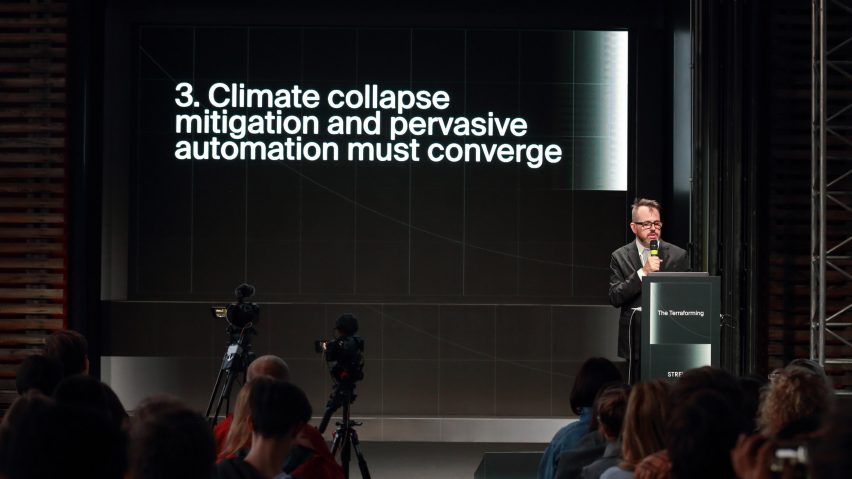The Strelka Institute for Media, Architecture and Design in Moscow has launched a postgraduate course to research how the Earth could be terraformed to reverse the impacts of climate change.
Called The Terraforming, the interdisciplinary think tank will research ways in which the Earth could be dramatically transformed in the future to return it to a state where it is suitable for human life.
"The term terraforming usually refers to transforming the ecosystems of other planets or moons to make them capable of supporting Earth-like life," explained the Strelka Institute.
"However, the looming ecological consequences of human activities suggest that in the decades to come we might need to terraform our own planet if it is to remain a viable host for Earth-like life."
As human disruption of the ecosystem and manmade climate change reaches crisis levels, the Strelka Institute wants to examine how the Earth could be re-programmed – before it becomes unsustainable for life.
It will offer free tuition and a monthly stipend to designers, architects, urbanists, economists and filmmakers who join each of the five-month courses during the three-year research programme.
Speaking at the launch, programme director Benjamin Bratton presented the case for examining urbanism "at a planetary level".
Bratton explained that terraforming Earth would be a risky venture so creating a think tank dedicated to exploring the technical, philosophical, and ecological impacts of reworking the planet's urban infrastructures was vital for the planet.
Cities – their construction, expansion and daily activity – are a major driver of this planet-wide destruction, with effects that are being felt in everywhere on Earth.
The United Nations has warned we have just 12 years left to take action against climate change and avert a global disaster.
The Terraforming will comprise of alternating modules of seminars, studio work and technical workshops, with field trips to remote areas of Russia. The goal is to produce a series of texts and films outlining their design proposals.
The Strelka Institute is taking applicants from architecture, urbanism, film, interaction design, software design, humanities and social sciences, game design, and economics backgrounds.
The first course will run for five months between 25 January and 5 July in 2020. The Terraforming will be a three-year research cycle, with applications for the first cohort closing on 31 October 2019.
Geoengineering is another intervention scientists and designers are investigating to help stop climate change. Proposals include pumping gas into the atmosphere to mimic a volcanic eruption.
UNStudio has developed the Coolest White paint to harness the albedo effect by painting cities so they reflect the sun's rays and cool urban areas down.
Photography is by Lyudmila Savelieva for the Strelka Institute.

